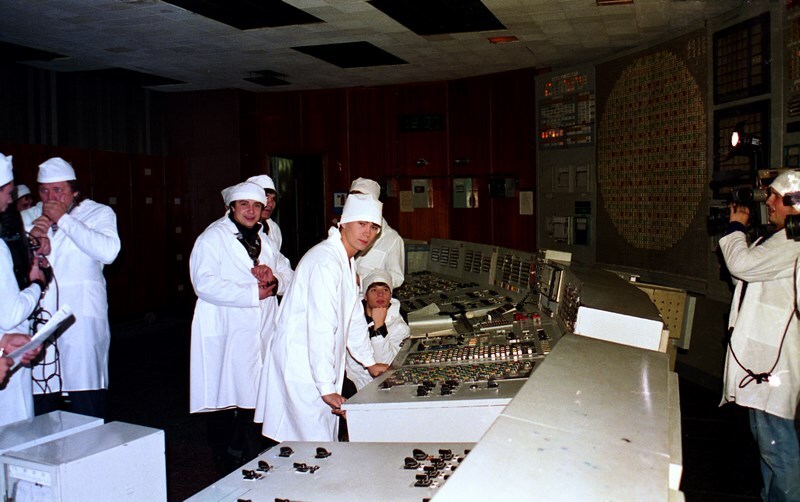I am so tired haha
PaX [comrade/them, they/them]
Very tired nerd who doesn’t know how to speak correctly
Ask me about floppa, Plan 9, or computer architecture or anything computers really (if you want)
:cat-vibing:
If I don’t reply to you it’s probably cuz I’m too tired, sorry :(
- 2 Posts
- 44 Comments

 91·3 months ago
91·3 months agoOkay but it was less
 , relatively
, relatively  to now
to now

 2·3 months ago
2·3 months agoOhh, I know, I was just making a joke cuz ed will print
?when it doesn’t recognize a command and many people will see that over and over if they can’t figure out how to exit lolI also got lost in vi and ed when I first used them lol
Tbh if I’m just making quick edits to config files or whatever I use nano lmao

 1·3 months ago
1·3 months ago?
 6·3 months ago
6·3 months agoAte a snack cake thing I got yesterday, and then discovered a warning about lead and cadmium on the back of the package


 41·4 months ago
41·4 months agoIf you like Unixy editors, highly recommend also looking into acme
Russ Cox describes it in this video as more like an “integrating development environment” as in it works with your surrounding operating system rather than an “integrated development environment”
Doesn’t shine as much on Unix as in Plan 9 though. Also no linter or formatter built into or distributed with acme but you probably could get your language’s usual tools to work pretty well with it

 171·4 months ago
171·4 months agoEd is the standard text editor.

I uhh wasn’t literally about to go do this or anything…

 4·4 months ago
4·4 months ago

 113·4 months ago
113·4 months agoWhy don’t they just move to El Salvador if they like Bitcoin so much


 5·5 months ago
5·5 months ago Plan 9 posting
Plan 9 posting

 31·5 months ago
31·5 months agodeleted by creator

 6·6 months ago
6·6 months agoWe are so back

 5·6 months ago
5·6 months agoOpenBSD, RISC-V, and 9front mentioned?

Haven’t listened to BSDNow in a while, but maybe I’ll listen to this episode

 1·7 months ago
1·7 months agoYou can check to see what drivers were compiled as modules or into your kernel by reading the kernel configuration at
/proc/config.gzor/boot/*config*There might also be out-of-tree (not included with the kernel) drivers installed as packages on your system but this is very rare outside of like… having an NVIDIA card and running the closed-source vendor driver

 7·7 months ago
7·7 months agoThe vast majority of drivers are included with the Linux kernel now (in tree) so the difference usually comes down to kernel version (newer kernels have more drivers, of course) or kernel configuration set at compile-time (this can be anything from including or not including drivers, to turning driver features on and off, or more fundamental changes beyond drivers)
You can get kernel version info from
uname -aand a lot of the time, probably most of the time (this is also down to configuration), you can get kernel configuration info from/proc/config.gz(usegzip -dto decompress) or something like/boot/configThen you can run
diffon configurations of 2 different distro kernels you’re interested in to see how the 2 distribution’s kernels were set up differentlyThis could also be caused by different setups of userspace tools or UI that interact with these drivers in different, sometimes worse ways but this is usually much less likely in my experience (most Linux distros do things like this the same way these days tbh)
Oh, also, there are a lot of drivers that require vendor-supplied firmware or binary blobs to function and most of the time distros don’t bake these into the kernel (although it is possible) and different distros might have more or less of these blobs available or installed by default or they might be packaged differently. The kernel should print an error message if it can’t find blobs it needs though
I guess there’s kinda a lot to consider lol. Sorry if all of this is obvious
What hardware are you talking about specifically?

 3·7 months ago
3·7 months agoOhh that’s true, I didn’t think about that. It would be difficult to route anything through it unless you were connected directly to it with nothing in-between because no other router would forward packets destined for somewhere else to my machine (except maybe in the extremely unlikely case of source routing?). It seems obvious now lol, thank you!
I’ll write some firewall rules just in case



Windows UI design peaked with Windows 98 and Unix UI design peaked with IRIX imo